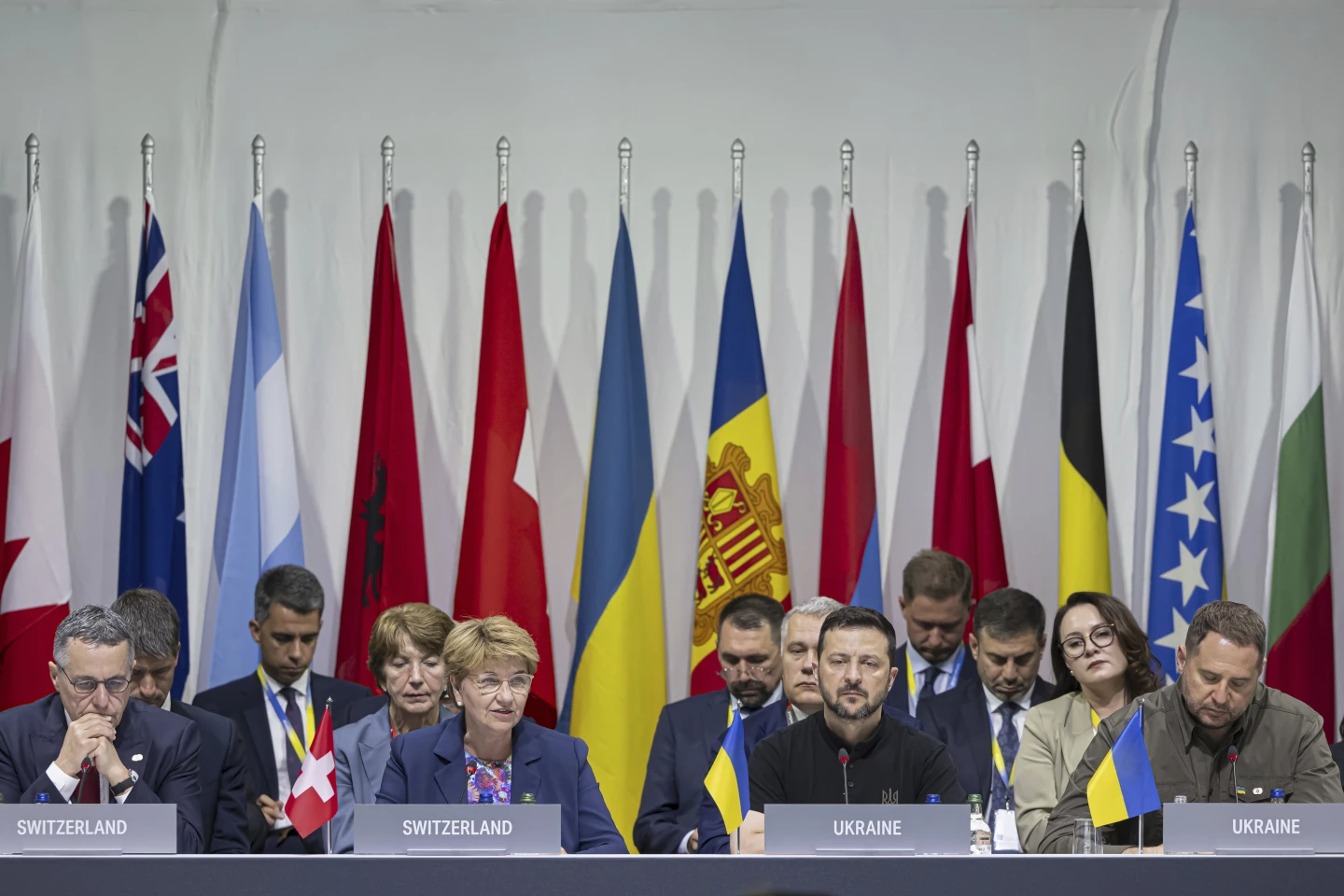
Eighty countries jointly called on Sunday for Ukraine's "territorial integrity" to be the foundation of any peace agreement to end Russia’s two-year war. However, some key developing nations at a Swiss conference did not endorse the statement.
The joint communique concluded a two-day conference at the Burgenstock resort in Switzerland. Russia was notably absent, as it was not invited, but many attendees expressed hope that Moscow could eventually be included in peace efforts.
Approximately 100 delegations, primarily from Western countries but also including several key developing nations, participated in the conference. Observers were keen to see how the participants would respond to the final document.
Notably, India, Saudi Arabia, South Africa, and the United Arab Emirates, represented by foreign ministers or lower-level envoys, did not sign the final document, which addressed nuclear safety, food security, and prisoner exchanges.
Brazil, attending as an observer, also refrained from signing, while Türkiye, which has positioned itself as a mediator between Russia and Ukraine, did endorse the document.
The communique emphasized that the U.N. Charter and "respect for territorial integrity and sovereignty ... can and will serve as a basis for achieving a comprehensive, just, and lasting peace in Ukraine."
Swiss President Viola Amherd, who hosted the event, highlighted that the "great majority" of participants agreeing to the final document demonstrated the potential of diplomacy.
Ukrainian President Volodymyr Zelenskyy praised the conference as "the first steps toward peace" and noted that the communique remains "open for accession by everyone who respects the U.N. Charter."
Ursula von der Leyen, President of the European Commission, stressed that the conference, aptly titled "Path to Peace," was not a peace negotiation. She criticized Russian President Vladimir Putin for not being serious about ending the war, citing his demands for Ukrainian capitulation, territory, and disarmament.
Analysts suggest the conference is unlikely to have a significant immediate impact on ending the war, given Russia's absence. China, a key Russian ally, and Brazil, which did not attend, have been exploring alternative peace initiatives.
The conference aimed to refocus global attention on the war amid other pressing issues, such as the conflict in Gaza and national elections. The final statement’s emphasis on nuclear safety, food security, and prisoner exchanges reflects the "minimum conditions" for negotiations with Russia, according to Italian Prime Minister Giorgia Meloni.
Qatar’s Prime Minister, Sheikh Mohammed bin Abdulrahman Al Thani, highlighted his country’s efforts in reuniting Ukrainian children with their families. To date, these efforts have successfully reunited 34 children.
White House National Security Adviser Jake Sullivan emphasized the need for ongoing international efforts to address the Russia-Ukraine conflict. He called for diverse global voices to condemn Russia's actions and advocate for their reversal.
The Ukrainian government estimates that 19,546 children have been deported or forcibly displaced, with Russian Children’s Rights Commissioner Maria Lvova-Belova confirming that at least 2,000 were taken from Ukrainian orphanages.
Montenegro Prime Minister Milojko Spajic expressed deep concern over the forced transfer of Ukrainian children, urging more action to ensure their return to Ukraine.